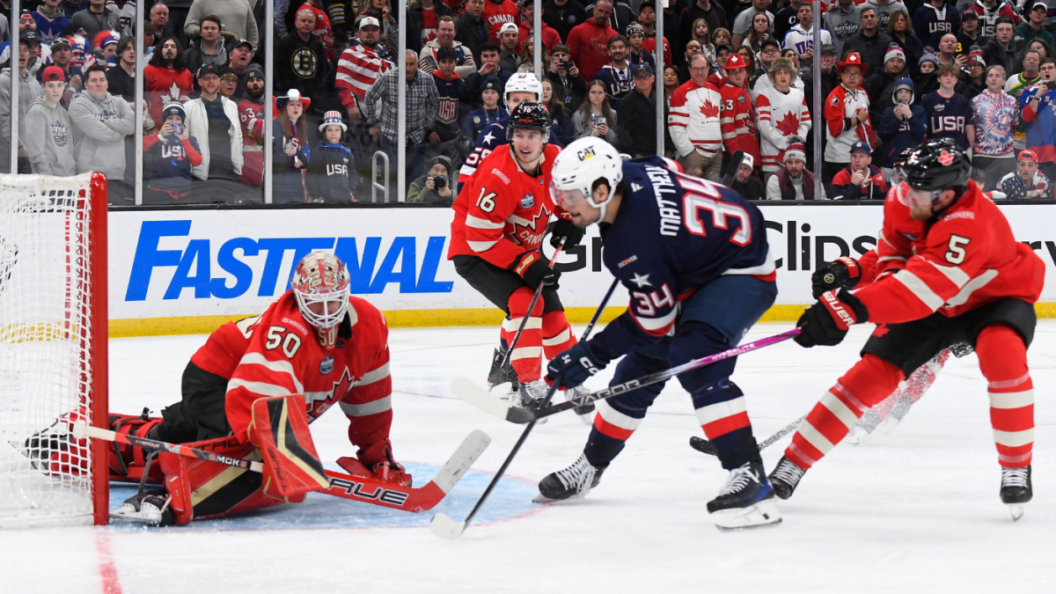Excitement Rises at the 4 Nations Face-Off: Connor McDavid Leads Canada to Victory
The 4 Nations Face-Off concluded with electrifying performances, highlighted by Edmonton Oilers superstar Connor McDavid, who guided Team Canada to a thrilling 3-2 overtime victory against the United States in the championship game held in Boston. This tournament served as a showcase for NHL talent, thrilling fans eager for high-stakes international hockey.
Dramatic Championship Finish
In a nail-biting overtime, McDavid scored the decisive goal at the 8:18 mark, assisted by Toronto Maple Leafs’ Mitch Marner. This victory marked a significant moment in the storied rivalry between the U.S. and Canada, which has seen several intense showdowns in international hockey history. Previous encounters included Sidney Crosby’s game-winner in the 2010 Olympics, reflecting the deep competitive spirit between these two hockey powerhouses.
The tournament featured an impressive series of matches, with the initial encounter resulting in a 3-1 victory for the U.S. The championship clash echoed the excitement of the first game, demonstrating the quality of both teams and the high stakes involved. After trailing in the rankings for some time, the United States displayed a competitive edge, although they still seek their first best-on-best tournament victory over Canada since the 1996 World Cup of Hockey.
Winners and Losers of the Tournament
The competition proved beneficial for several groups, notably hockey fans who enjoyed a rare best-on-best format. With no similar tournaments occurring since the World Cup of Hockey in 2016, this event allowed fans, regardless of their allegiance, to witness top-tier talent compete. Not only did those already invested in hockey benefit, but casual viewers may have also been drawn to the sport, enhancing its popularity.
One standout player from Team Canada was goaltender Jordan Binnington. Initially criticized for the selection of goalies on the Canadian roster, Binnington rose to the occasion, exhibiting remarkable skill and poise in crucial moments, particularly during the championship match where he made several key saves. His performance seemed to shift the narrative surrounding his career, showcasing an ability to excel under pressure.
Conversely, Sweden experienced disappointment, failing to advance despite a roster full of talent, including stars like William Nylander and Elias Pettersson. The team could only manage one win, and their highly anticipated offensive potency did not materialize, leading to frustrations among fans and analysts. The Swedes missed an opportunity to demonstrate their capability against formidable opponents such as Canada and the U.S., disappointing expectations built around their talent.
Impact on Future Events
The 4 Nations Face-Off has raised questions about the NHL’s traditional All-Star Weekend. Many fans and participants felt the excitement of this tournament far surpassed that of the usual All-Star festivities, which have been criticized for lacking the intensity and competitive spirit found in a best-on-best format. Looking ahead, the NHL’s decision to participate in competitions like the upcoming 2026 Winter Olympics could capture the essence of this event, promising to maintain fan engagement and interest.
In conclusion, the 4 Nations Face-Off has reinvigorated discussions about international hockey tournaments and their potential to resonate with audiences. The resonance of this competition suggests that fans are eager for more opportunities to see the sport’s elite compete on a grand stage, potentially reshaping how the NHL approaches midseason events in the future. As advancements in the hockey landscape unfold, the tournament may set a precedent for more competitive engagements and continues to stoke enthusiasm within the hockey community.









